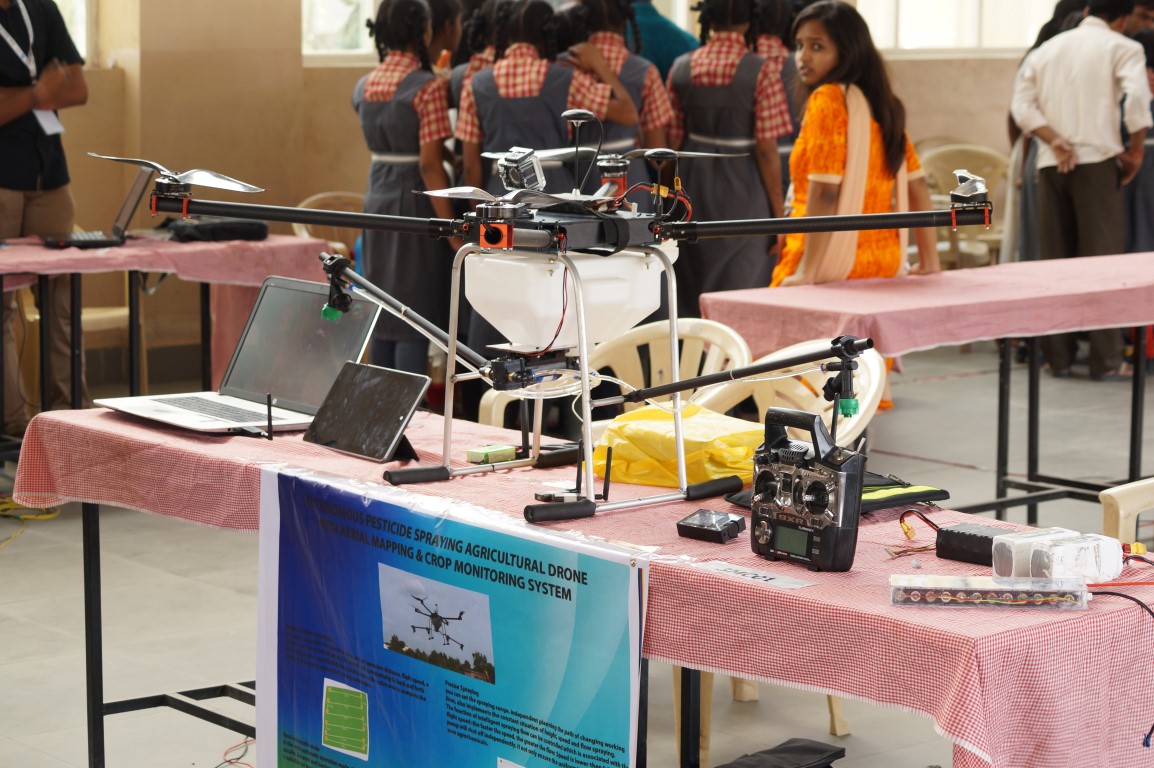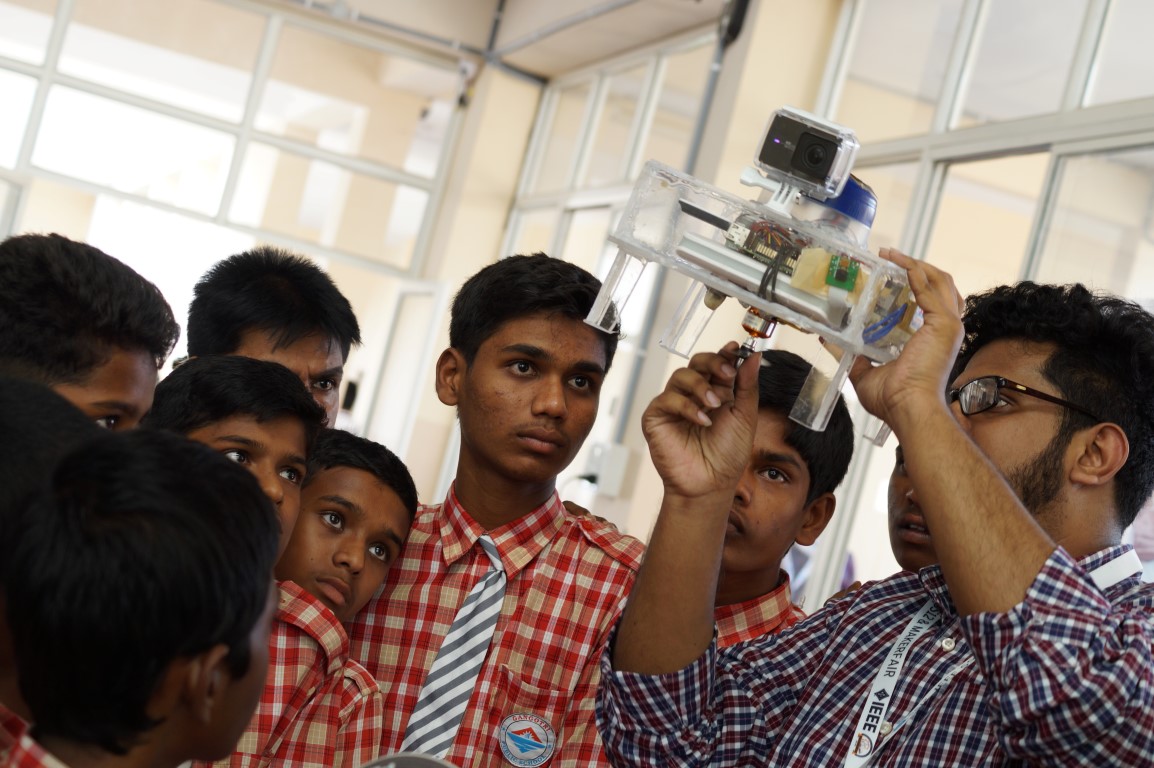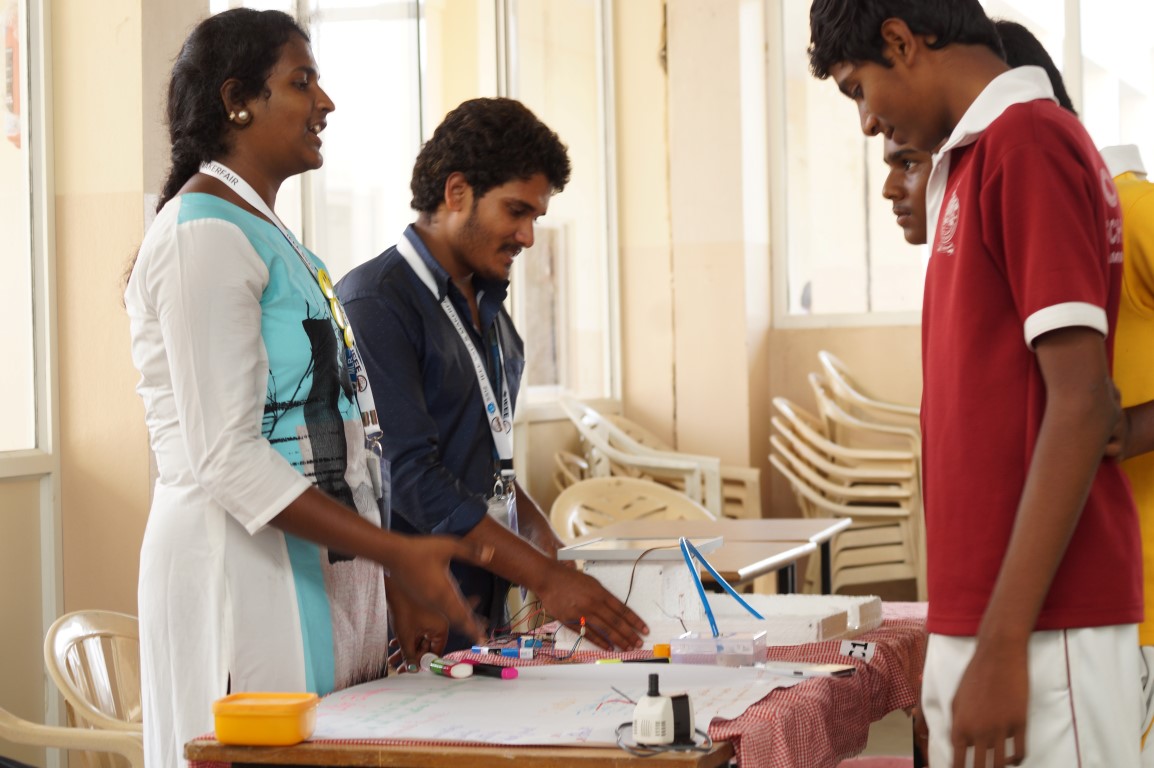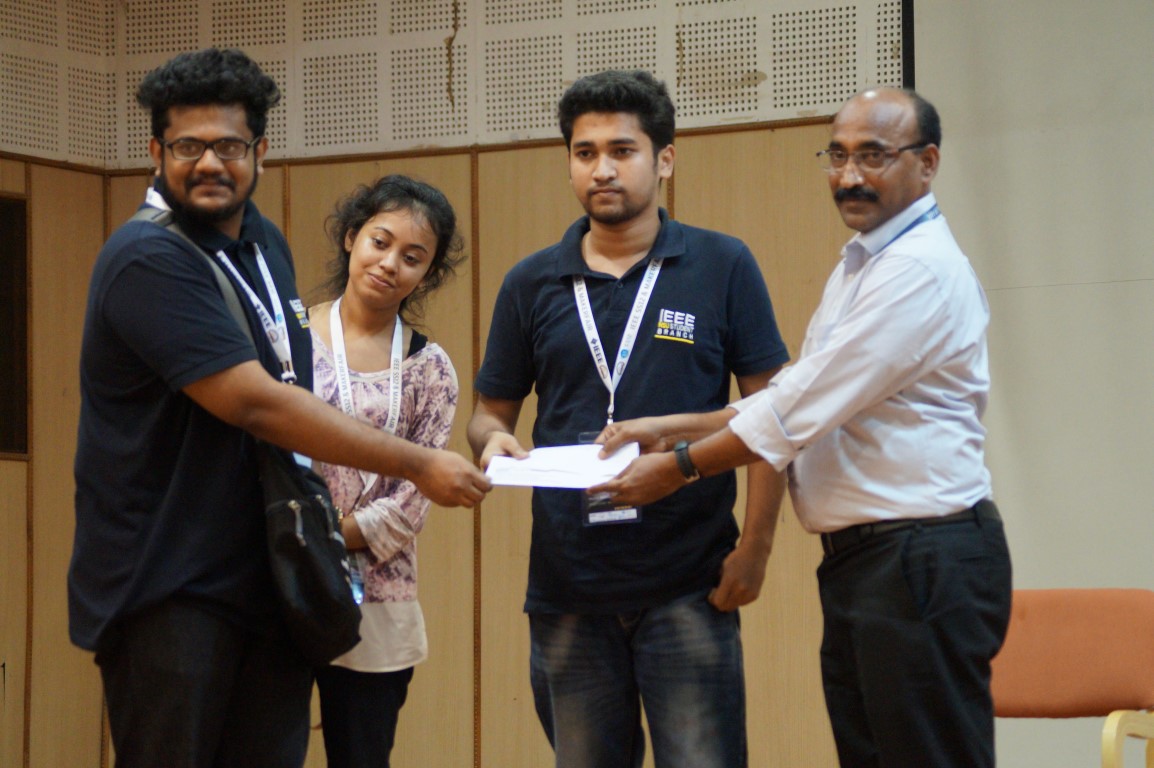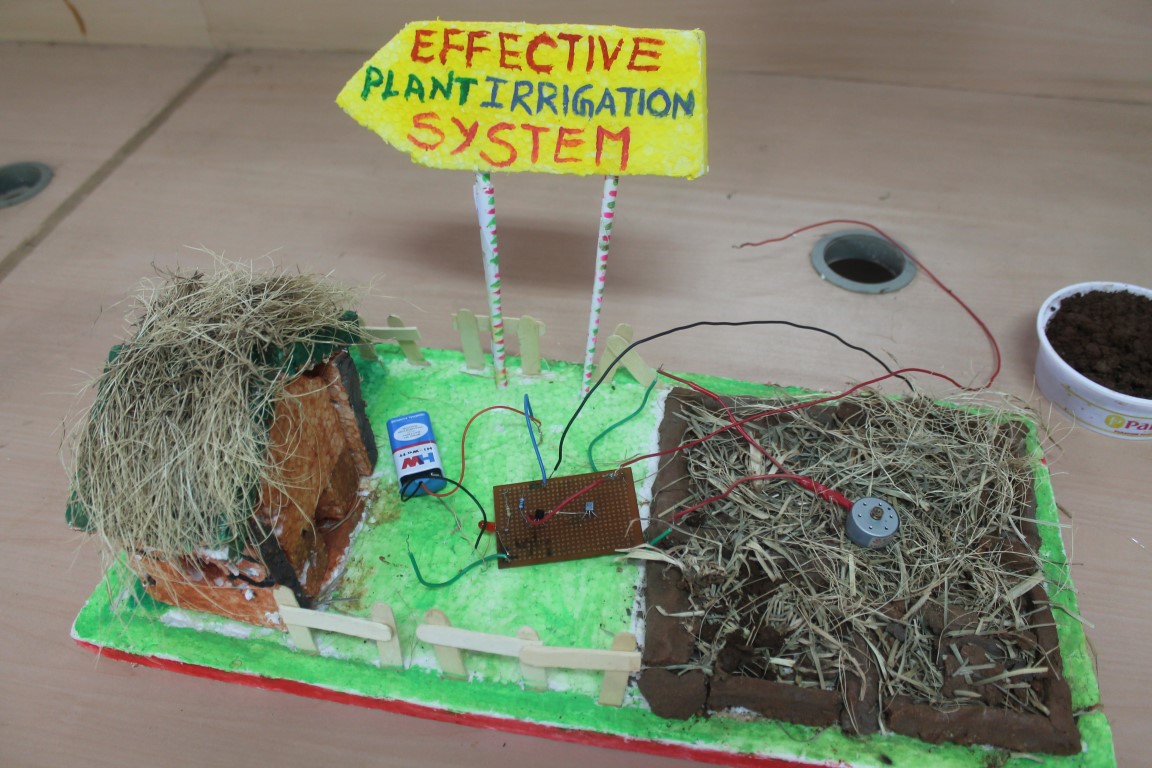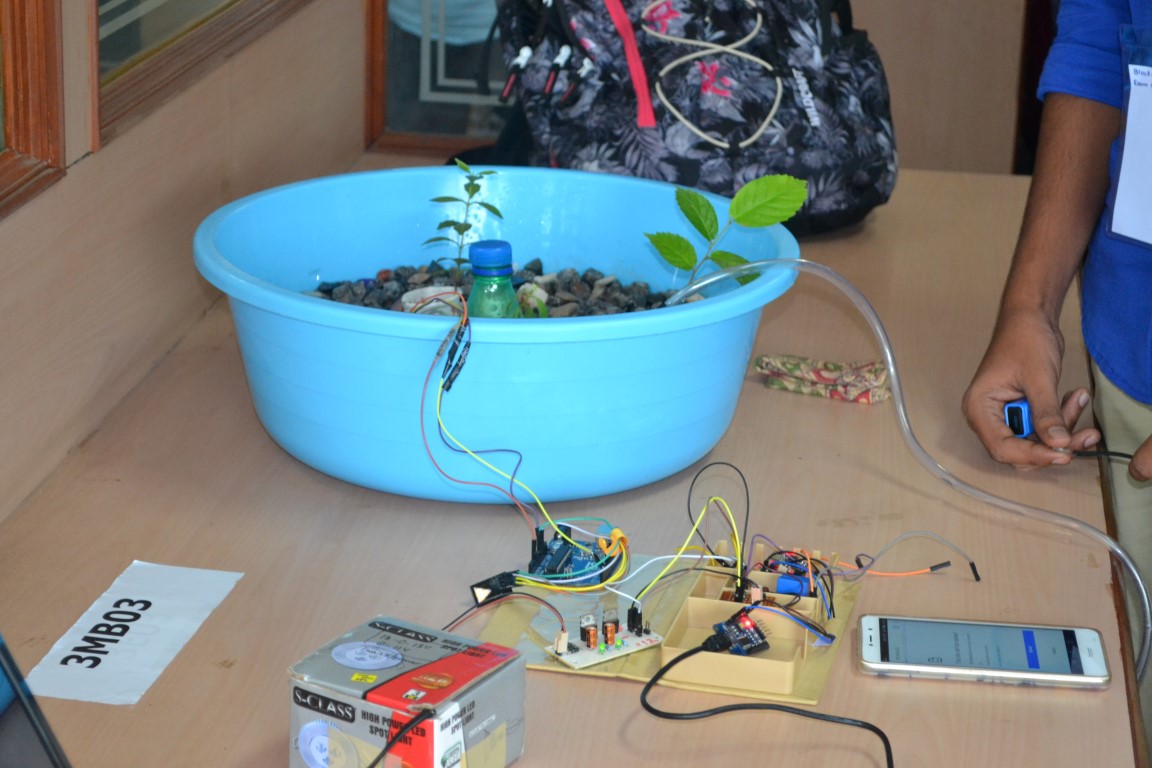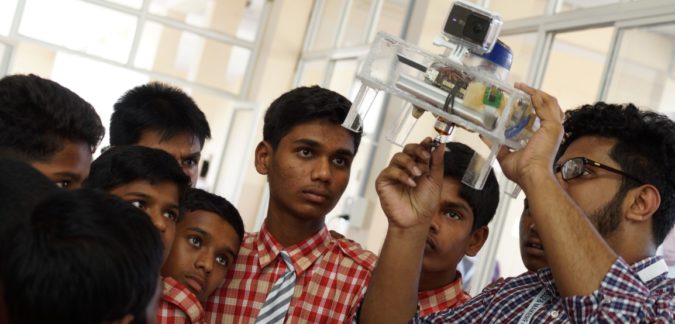SS12 is a Coding and Making Challenge jointly organized by Madras IEEE Education
Society, Project Possibility and REAL Breakthrough. It is hosted in partnership with IEEE
Humanitarian Activities Committee, Societies, sections, Universities and leading technology
industry companies. This year the challenge was conducted to recognize the best social
innovation application on the theme given:
‘EDUCATION THROUGH INNOVATION: INNOVATE, DEMONSTRATE AND EDUCATE,’
The theme Education through innovation aims to make STEM education an interesting
path to follow for the students of Engineering and Technology. Under this the projects for
providing solutions in the following areas were presented:
-
- • Agriculture and environment
-
- • Healthcare
-
- • Assistive systems for people with disabilities
-
- • Games and entertainment
-
- • Clean water and energy
-
- • Disaster management
-
- • Women safety
-
- • Others
Pre Competition Activities:
The competition was held in two rounds. Pilots were called for in Asia Pacific and the first
round of the competition was held all over Asia in the pilots selected on the basis of registration.
The pilots were:
1. Usman Institute of Technology, Karachi
2. IEEE Bangladesh Section, SIGHT Group FLASH of Bangladesh Section and United
International University
3. IEEE SriLanka Section
4. Vardhman College of Engineering, Hyderabad, India
5. UniversitiSains Malaysia (for Singapore, Malaysia and Thailand)
6. Sri Venkateshwara College of Engineering, Bengaluru
7. Madanapalle Institute of Technology, Chittoor, Andhra Pradesh
8. Mangalam College of Engineering, Kerala
9. IEEE Pune Section
10. Nirma Institute of Technology and IEEE Gujarat Section
11. St.Xaviers Catholic College of Engineering, Nagercoil
12. Kongu Engineering, College, Erode, Tamil Nadu
The winning teams from each pilot competed with each other during the final round at
Vardhman College of Engineering, Hyderabad, India on September 8 th and 9 th , 2017.
Maker Fair call for abstracts were sent out in the month of May 2017. About 70 submissions
were received out of which 40 were selected and the students from 20 colleges competed for the
first Prize.
Finals:
On the dates of the finals, around 200 students and 40 young professionals from 25 engineering
colleges in six countries brought their dreams and hopes with them as projects. In addition 50
students and young professionals participated in virtual track. The inauguration was held at 10
am on 8 th with Dr. Tessy Thomas, Director, DRDO, dubbed as the Missile Woman of India. She
talked about the importance of “Learning by doing” and how “Practice Makes Perfect”. She
mentioned how without practice, mistakes occur and in Space Missions, how mistakes can cost
lives.
The keynotes were given by Mr. MGPL Narayana, Vice President and Chief Scientist, Tata
Consultancy Services, Hyderabad, Mr. Divyanshu Verma, Senior Manager, Intel India R &D,
Bangalore, Dr. Y Vijayalatha, past Vice Chair, India Council Women in Engineering, Mr. Vamsi
Krishna, Head, Academic Relations, StuMagz and Mr.Abilash Praveen, Head, Systems and
Security, Concise Creative Pty. Ltd. Mr. Chandana Munasinghe, Executive Committee member,
IEEE Sri Lanka Section, Research Engineer – SYNERGEN Technology Labs was an invited jury
for the Maker Fair.
Mr. MGPL Narayana, a Masters degree holder from Indian Institute of Science, holds several
patents in contextual search and security. Leading the Systems Engineering and Cybernetics
initiative in TCS, he talked about “The Digital Revolution” explaining about the bright and dark
sides of the technological revolution especially the privacy issues and cybernetics revolution. He
ended with how IEEE is taking steps to ensure ethically acceptable AI systems are developed
and how students developing automation should follow in that path.
Shri. S. Purushothaman joined as a Scientist in Vikram Sarabhai Space Centre, ISRO at
Trivandrum in 2004 and currently he is a Senior Scientist in ISRO, Bangalore. He gave a
detailed account of the Indian Space History beginning at how the first design was started by
Vikram Sara Bai and Dr. APJ Abdul Kalam going on to explain the differences in the various
rockets and payloads indigenously designed. The final account about the Mars Mission and its
video was eye catching and his research in RF design and Antenna Design is exciting. Some of
the unique facilities in the Space Centre were explained along with a demonstration of the
models in the Maker Fair.
Mr. Divyanshu Verma, an alumnus of IIT- Delhi and IIM- Bangalore has 19 years of experience
in software product development in Intel, Ericsson, Broadcom, Dell, GE and NetApp. With two
patents to his credit, he talked about the future directions of the Artificial Intelligence and
explained how machines can replace men and how superpowers are trying to guard the mankind
from that happening.
Mr. Abilash Praveen has over 14 years of experience as an entrepreneur and is successfully
running two companies. With his interest in training the students and helping the young
professionals in achieving their dreams, he talked about how to start and go on being an entrepreneur. He talked about how innovation can create a successful entrepreneur and what
qualities can keep you going.
Dr. Vijayalata is an active volunteer in IEEE WIE and India Council and she encouraged the
students to become volunteers and told them how practice based education can be achieved
through volunteering. Mr. Vamsi Krishna, Vice Chair, Young Professionals Professional
Activities was also the jury for the Virtual Track. He talked about how IEEE has helped him to
become an entrepreneur and gave suggestions on what skill sets the students should develop to
have a successful career.
Dr.Ramalatha Marimuthu, General Chair of the SS12 International Project Competition and
Maker Fair 2017 talked about how Project Based Engineering Education will be beneficial to the
teachers, learners as well as the society around us. She provided the outcomes of some of the
case studies where the students could produce electricity for a tribal village, provide solutions for
health care problems and train rural women for technology based entrepreneurship.
There were twelve pilots and twelve projects were presented for SS12 while forty projects were
displayed in the maker fair and 10 projects were presented in the virtual track. The jury for all
tracks consisted of one person from industry and one person from academia. SS12 was evaluated
by Mr. Abilash Praveen and Dr. Vijayalata. Maker Fair was evaluated by Mr. Chandana
Munasinghe and Mr.Navaneetha Krishnan. Virtual Track was evaluated by Mr. Vamsi Krishna
and Dr. Sagar.
The winners of SS12 had a novel wind turbine designed to generate electricity with the wind
created by the slow movement of vehicles on the road. The design was tested on the roads and
the video of the project development was also presented. The team was from Sri Venkateshwara
College of Engineering, Bangalore. Maker Fair first prize was shared by three teams from India,
Bangladesh and Pakistan. The Indian team had a physiotherapist as a part of the team who
registered because of his interest.
The organization of the event was for the whole year and nearly 100 volunteers were involved in
pilots and finals out of which 50 were from Young Professionals. Certificate distribution and
sending thank you letters for all the speakers, pilots and juries have been completed. It was a great learning for all involved and it is also planned to evaluate the performance of the pilots and
finding the most vibrant pilots and awarding them. It is also decided to create the data base of the
projects and help the interested
